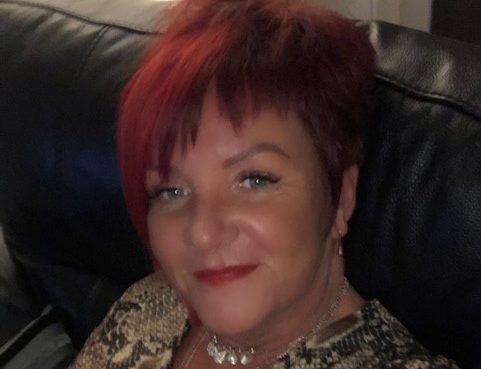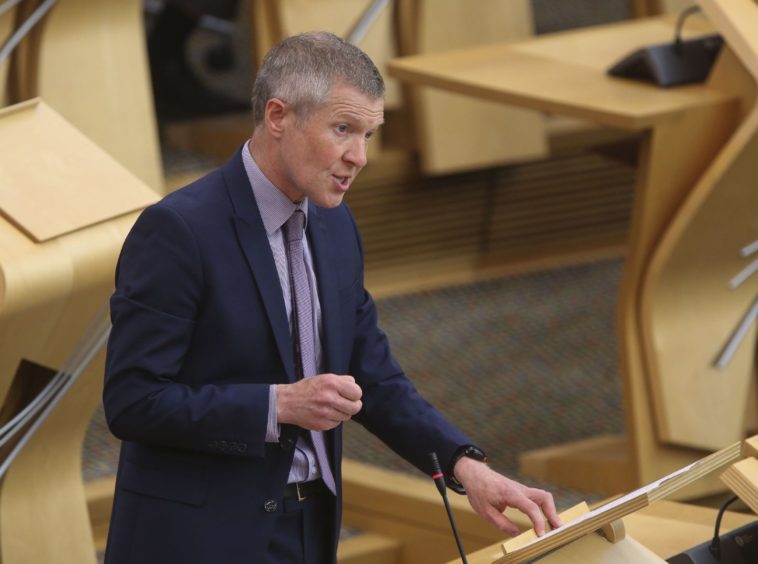A Tayport woman has claimed her health is “in danger” because anti-coronavirus measures mean she is unable to have her gall bladder removed.
Linda McKenna, 55, described the agonising pain she has suffered after her case led to Holyrood calls for the resumption of operations, which have been cancelled to free-up NHS capacity during the pandemic.
On Friday Ms McKenna was discharged from Ninewells Hospital, Dundee, without having surgery, despite doctors saying her gall bladder needs to be taken out.
During a hospital stay of several days involving morphine painkillers, ultrasound and MRI scans, Ms McKenna was told that she could not be operated on unless she was classed as an urgent case.
“They told me I needed an operation but they weren’t allowed to operate until September unless it was an emergency,” Ms McKenna, a mother of two grown-up children, said.
That shocked me because there were other people in the hospital who were suffering too.”
Linda McKenna
In desperation, Ms McKenna ended up writing to her local MSP, Lib Dem Willie Rennie, from her hospital bed.
“It was the doctors who said: `Write to your MSP, because our hands are tied. We are doctors, trained to help, but we are not getting allowed to do anything until September because of the new guidelines’.
“They had no problem with me writing to my MSP. They encouraged it. That shocked me because there were other people in the hospital who were suffering too,” Ms McKenna said.
Ms McKenna said she feared her case could be affected by the logjam of operations resulting from the coronavirus pandemic.
“There is going to be backlog and I’m more scared that this is going to have to wait until I’m in a bad state again and that, to me, is putting my health in danger. But these theatres are there – spotless and everyone’s being tested. But the doctors are being prevented from doing surgery,” she said.
An increase in Scottish deaths, which cannot be explained by the Covid-19 virus, have sparked fears that anti-coronavirus measures could have a negative impact on people suffering from other illnesses.
She’s on painkillers, antibiotics but is worried that the pain will be soon be back. Why does Linda have to wait until the pain gets worse before she can have the operation she needs?”
Willie Rennie, Scottish Lib Dem leader
Mr Rennie took Ms McKenna’s case up with First Minister Nicola Sturgeon at Holyrood, claiming there was hospital capacity for operations to be performed now.
“She’s on painkillers, antibiotics but is worried that the pain will be soon be back. Why does Linda have to wait until the pain gets worse before she can have the operation she needs?” Mr Rennie, North East Fife MSP, asked.
A matter of hours before she publishes the Scottish Government’s “route map” out of lockdown, Ms Sturgeon said she sympathised with Ms McKenna and “wished” she could have her operation.
But she said the people of Scotland understood why operations had to be postponed during the crisis and added that plans were being made to restart them.
“We had to make judgements about the risk to patients and whether that risk would have been greater, taking them into hospital, bringing them into contact with people, perhaps exposing them to the virus,” the first minister said.
“We are now, as we start to come out of this acute phase of the crisis. We are intensively planning how we, in an orderly way, resume those NHS procedures. That will be work that accelerates over the next few weeks.”
Ms McKenna started to notice painful stomach troubles around four weeks ago.
I’m worried the pain will flare up again and it needs to come out urgently.”
Linda McKenna
But it was only when the pain became excruciating on the evening of Sunday March 10 that she phoned NHS 24. Paramedics were sent to her house in Tayport and she was transferred to Ninewells, where she was put on morphine.
Ultrasound and MRI scans were carried out and it was found that gallstones were creating a blockage. After it was decided the operation could not be carried out, Ms McKenna was eventually sent home with painkillers and antibiotics.
“I was in terrible pain, but with the painkillers it is a bit better now,” said Ms McKenna, who has serious underlying health conditions.
“But I’m worried the pain will flare up again and it needs to come out urgently. But I can’t afford to be taken into hospital and have a sudden operation because I’m high risk. It needs to be planned.
“But this isn’t just about me, there are other people as well. The doctors were saying they could operate but the Scottish Government have put out these guidelines. I have been in hospital a lot and I have never seen it so calm and underwhelmed and the doctors are telling me that come September, when the floodgates open, they are going to have a huge backlog and they will be overwhelmed.”
A spokeswoman for NHS Tayside said, “As is the case in all Health Boards across Scotland, clinical teams are currently working on remobilisation plans to identify how we can safely increase operations and procedures across our sites in a planned way and at the most appropriate time. Patient and staff safety will continue to be our primary concern.”

